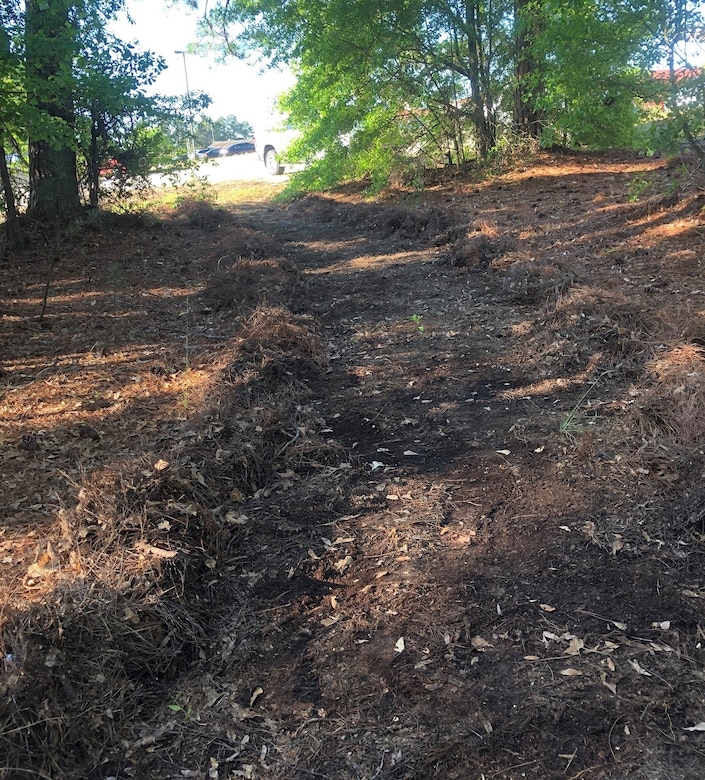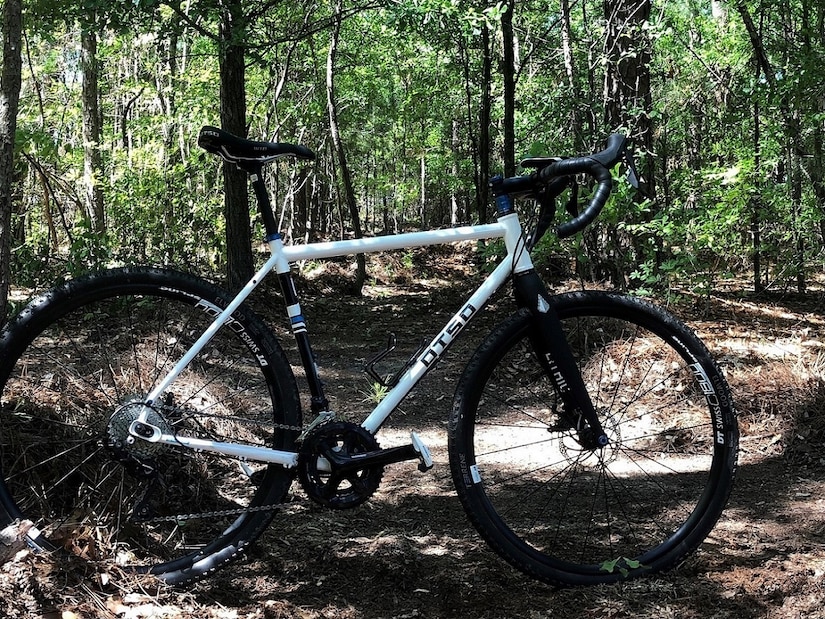Oct. 29, 2020 |
During the COVID-19 pandemic, the Fort Bragg, North Carolina, Soldier Recovery Unit has used the time constructively.
They cleared a bike trail in a stretch of woods near the SRU barracks
so that recovering soldiers can learn cycling basics and become
comfortable and confident cyclists.
ARCP supports wounded, ill and injured soldiers as they transition back
to the force or to veteran status. Adaptive reconditioning programs help
ARCP soldiers optimize their well-being and achieve goals through
activities and sports. Cycling is one example of a number of programs
designed to help ARCP soldiers.

The Fort Bragg SRU cycling program was established years ago and welcomes riders of all experience levels. Some haven't ridden a bicycle since junior high school. Others are experienced riders who, due to illness or injury, are learning the skills again with a new approach, said adaptive reconditioning support specialist Dean Bissey.
Sgt. 1st Class Michael Pugh rides with the cycling group twice weekly. He said the Army's investment in this program showed him that the Army really cares about the soldiers.
The trail the soldiers used to frequent was only wide enough for one bike to pass at a time. This made it hard for the staff and cadre to ride alongside beginning cyclists while they taught starting, gearing and braking on uneven terrain.
During the COVID-19 pandemic, Bissey had time to survey, map and clear a small route in an unused patch of woods near the SRU barracks. The new trail allows him to ride alongside soldiers safely.
''It's not a very long path, but it's enough that we could explain the beginner-level skills, and we could work on those skills without having to involve a 30-minute drive to a mountain bike trail,'' he said.
Once the soldiers gain experience, they are invited on group rides. Some may participate in bike rides with 40-50 people, which increases their circle of friends and influencers and creates a safety net that they didn't have before, Bissey said. To keep riders safe during the COVID-19 pandemic, the number of cyclists on rides was limited to five-plus staff members, and special cleanup and disinfecting procedures for personal protective equipment and common areas were instituted.
Pugh enjoys the camaraderie, conversations and meeting new people.

''The hour goes by quick,'' he said.
Pugh also cycles on his own because it challenges him every day and increases his endurance level. He plans to continue riding three to four days a week after he transitions, and he believes it will keep him fit and successful.
Bissey believes that cycling can provide soldiers with more than a good workout and a chance to expand one's social circle.
''People will remember the bike from being a kid and it being their first taste of freedom, the ability to go further and quicker than walking and the ability to explore past your own few blocks,'' he said. ''This sense of freedom is tapped into when soldiers start riding again.''
Adaptive reconditioning programs provide activities and sports that help wounded, ill and injured soldiers to optimize their well-being, achieve their goals and return to active lifestyles. Through these virtual programs, soldiers can continue classes and programs and try new ones. During the COVID-19 pandemic, an average of 350 AR activities are offered at 14 SRUs across the country every week.
The Army Warrior Care and Transition Program is now the Army Recovery Care Program. Although the name has changed, the mission remains the same: to provide quality complex case management to the Army's wounded, ill and injured soldiers.
No comments:
Post a Comment